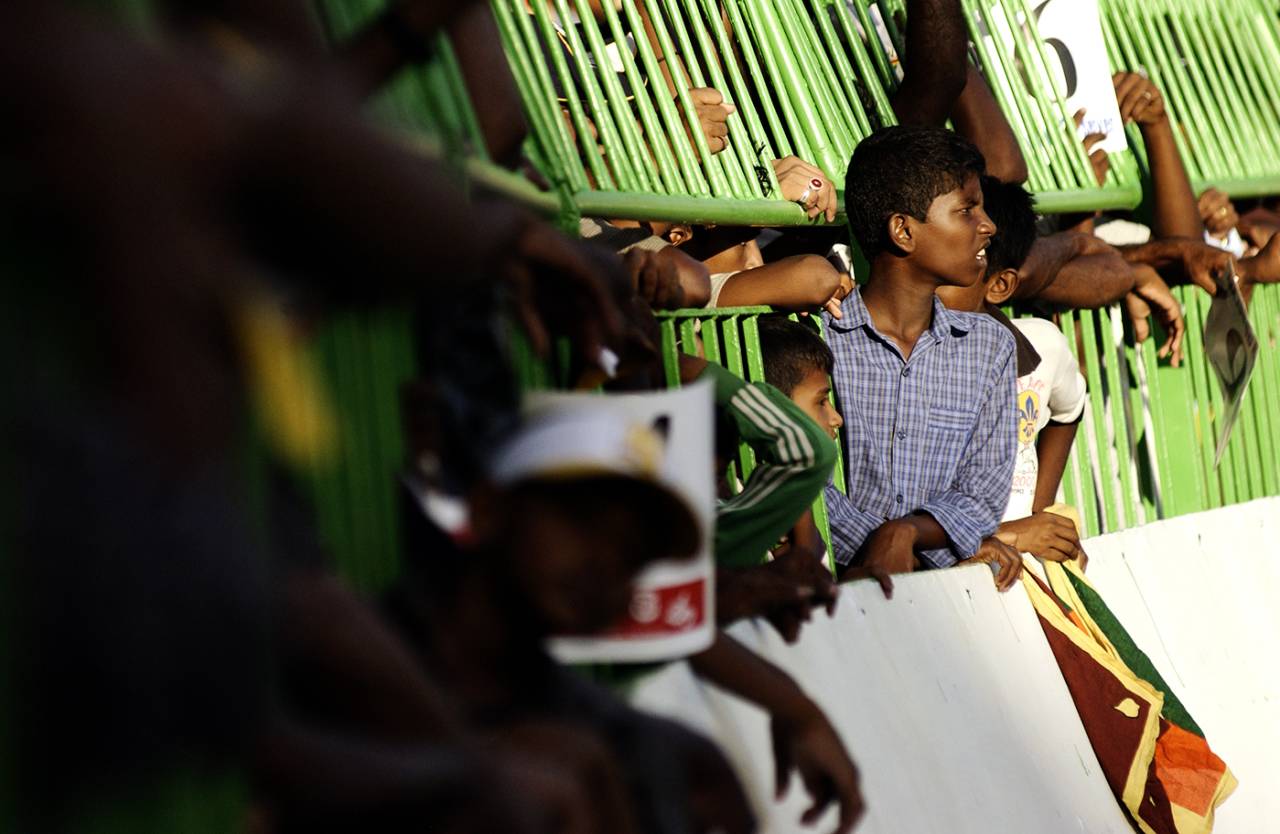First, allow me to lay out a bias: I was probably always going to like this one.
Sri Lanka does not, alas, produce a wealth of cricket books. Where Ben Stokes already has a hardcover in circulation, Muttiah Muralitharan is yet to flog a 400-page grievance - the likes of which have recently become the prerogative of so many retired cricketers. (And of endured hardships, who could possibly have a greater store than Murali?)
A cricket book out of Sri Lanka is rare enough, but with Winds Behind the Willows, Ranjan Mellawa has produced something distinctive: the memoirs of a lifelong fan. There are no tiffs with former captains, or gripes about selectors. Instead, here are rough-and-ready touring tales from six global tournaments, and many Tests besides. Here is a bird's-eye view of Sri Lankan cricket's many tumbling transformations in Mellawa's five decades of following cricket.
Among the strengths of Winds is the author's uncanny knack for finding himself in interesting places at fascinating times. He reports, for example, from the boozy, baila-blasted charter flight that ferried the 1996 world champions home from Lahore, barely eight hours after the trophy was lifted. He chats mid-air with Arjuna Ranatunga and cops abuse from Kumar Dharmasena. Later, he hobnobs with big shots of Sri Lankan cricket in the UAE during Sharjah's ODI glory days, and, as a resident of the UK by 2006, he soaks in Sri Lanka's epic rearguard at Lord's from the stands.
Perhaps the most enlightening chapter comes early in the book, when Mellawa describes his run as secretary of the burgeoning Ragama Cricket Club, just as the World Cup win was reshaping Sri Lanka's cricket administration. Here, he is an outsider's insider - close enough to the action to gain an unhindered view of a chaotic transition, but distant enough from the central melee to avoid getting caught up in it.
His anecdotes plot SLC's trajectory from the painfully conscientious body that refused to reimburse a $12 cab ride without receipts to the festering cesspit of waste and extravagance that fans know and despise today. What is particularly distressing about this section is the realisation that Sri Lankan board elections of the late nineties and early aughts were contested by virtually the same bands of wheeler-dealing egotists whose tentacles continue to asphyxiate Sri Lanka's cricket two decades later. There is one story about a young administrator kicking and shoving "a man twice his age" at an AGM. That the assailant is a high-ranking official in the present board is at once shocking and utterly unsurprising.
There is flab here, a great deal of it. At times, Mellawa dwells for too long on insignificant informational titbits, interrupting otherwise enjoyable passages to convey widely known facts and overtold histories. Leaping occasionally from thought to exposition to story to joke, the book gains little from the diversions when the main narrative is suddenly resumed. It could have done with losing as much as a fifth of its 379 pages - the weaker anecdotes culled, and the less significant match reports seriously trimmed. The prose is largely simple and readable, but can sometimes also veer toward cliché. The clunkiness of the dialogue perhaps reflects the difficulties of translating from idiosyncratic Sinhala to plain English.
But then so many of these flaws are redeemed by the ardour that saturates the work. Mellawa's is a devotion that has taken him to Lahore, Bridgetown and Mumbai for each of Sri Lanka's World Cup finals, as well as to London, Colombo and Dhaka for their cracks at the World T20 title. He hunts for black-market match tickets on at least three continents. More than once, favours are called in, and seats are circuitously procured from powerful men. Though Sri Lanka is the team he unconditionally supports, it is clear from early in the book that it is cricket itself that Mellawa is most besotted with.
Eventually, a collage of the roving cricket fan's touring experience comes together: the dope-scented afternoons and rum-soaked evenings of the Caribbean, the eager hospitality of Bangladesh, New Zealand's bounty of enchanting grounds. The cricket world's blemishes get an airing too. Mellawa dwells on the snootiness of Lord's and remarks upon the intimidating edge of some Australian crowds, while the intransigence of India's stadium-posted policemen once prompts him to leave a World Cup semi-final in something of a huff. Though occasionally a grump, such as when he bemoans the state of cheerleading in the 2012 World T20, Mellawa's complaints are generally brief. Enthusiasm is the overriding vibe. Tests are his favoured format, but he also admires the cut and thrust of T20 and its innovations, not least because Sri Lanka were once unlikely kings of the format.
In some ways, Mellawa's is a vital work. While administrators increasingly regard the sport as their product and fans as walking dollar signs, Winds gives voice to the spectating hordes who are cricket's lifeblood. There are considered critiques on cricket's exclusionary elitism, and perhaps more poignantly, illustrations on how the spectre of match-fixing spreads disillusionment among fans. The 2011 World Cup, in particular, Mellawa reports, was bristling with rumour.
Elsewhere, there are odes to cricket's superfans, such as Uncle Percy, Chacha Cricket and Antigua's Gravy, and Mellawa weaves in stories from his own life, all enriched by a cast comprising family members and friends. It is this conveyor belt of vignettes that keeps the tone lively and makes Winds a fascinating light read, even if, on occasion, you may wish it was a little lighter.
Winds Behind The Willows
By Ranjan Mellawa
Andrew Fidel Fernando is ESPNcricinfo's Sri Lanka correspondent. @andrewffernando

